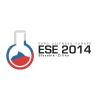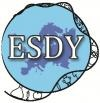MILSET Newsletter - August/September 2014
 |
MILSET friends: In many parts of the world, July and August are marked by school vacation - and MILSET regional events - a good time to reflect on the role that schools and teachers play in engaging youth in science and technology and how MILSET member organizations can contribute to this goal. Driven by state curricula - and state exams in many jurisdictions - science teachers tend to focus on the content - the facts, concepts, and theories comprising the scientific knowledge base. When hands-on activities are included, they are often cookbook-style recipes that demonstrate a particular phenomenon, but require little student thinking. This approach appears to be sufficient when there are strong external motivators for pursuing post-secondary education and a career in science or engineering - a high-paying job, parental pressure, or a competitive academic environment - that are often present in emerging and developing nations. However, when those motivators have less impact - as in many developed countries students tend not to choose science, even when they're good at it. For example, Canadian 15 year-olds score well on international (OECD) assessments of science achievement, but the country ranks low for science and engineering graduates. Canadian teens are good at science but only about 30% choose senior secondary school STEM courses, limiting or eliminating the possibility of science and engineering related careers for 7 out of 10 students. Efforts to address this type of situation - through promotion, outreach, and engagement by organizations like the members of MILSET - often target secondary school students. However, research suggests that this is too late. The 2010 Canada Foundation for Innovation/Ipsos-Reid Canadian Youth Science Monitor, which surveyed over 2,500 youth ages 12-18, found that 78% of Canadian students ages 12-13 agreed with the statement, "I am interested in science," compared with 58% of those ages 17-18. The study also concluded that a student's interest in science depends on viewing science as fun, inspiring, and important and that ages 12-13 are a critical period for influencing their interest in STEM. A 4,800 student, seven-nation study conducted by Lenovo in 2011 found that most high school and university students chose whether or not to pursue STEM when they were in middle school (ages 11-13). MILSET member organizations contribute enormously to the level of interest in youth STEM around the world through a remarkable array of programs and activities. As you prepare to begin another season, consider how your organization's programs are helping youth ages 11-13 to see science as fun, inspiring, and important - and to help them to decide,"I am a STEM kid." Sometimes a small shift in strategy, such as the ages we focus on, can have a major impact. Reni Barlow |
 |
MILSET regional Expo-Sciences Every even year, MILSET regional platform are organising their expo-sciences welcoming the best projects of their region.  MILSET Expo-Sciences Asia 2014 MILSET Expo-Sciences Asia 2014  MILSET Expo-Sciences Europe 2014 MILSET Expo-Sciences Europe 2014  MILSET Expo-Sciences Latin America 2014 MILSET Expo-Sciences Latin America 2014 |
 |
MILSET Journal on Science Engagement  Browse the site for more information Browse the site for more information |
 |
Young Citizens Conferences 2014 YCC will be held on various locations around the world. This year's topic is "Farming"  Browse the site for more information Browse the site for more information  Download the guidelines document Download the guidelines document |
 |
Science Camps 2014 Interested in doing some science next summer? Willing to spend your holiday in an international environment?  Take a look at the science camps programme Take a look at the science camps programme |
 |
MILSET Expo-Sciences Asia 2014 Everything is ready to receive delegations from all over Asia and international guests at this spectacular Expo-Sciences, organized by MILSET Asia and Jubilee from 07th to 11th August in Amman, Jordan.  Browse the site for more information Browse the site for more information |
 |
10th Expo-Sciences Europe 2014 MILSET Europe and AMAVET are pleased to invite you to ESE 2014. The expo will be held in Žilina, Slovakia, from 7th to 12th September 2014.  Browse the site for more information Browse the site for more information |
 |
MILSET Expo-Sciences Latin America 2014 From 14th to 18th July 2014; MILSET AMLAT, RED COLSI and EAFIT hosted at Medellín, Colombia one of the most important MILSET Latin America's event  Browse the site for more information Browse the site for more information |
 |
MILSET Science Photo Contest 2014 The MILSET Science Photo Contest 2014 has been, one more time, a great success with 1642 pictures originated from 67 countries! This year laureates will be selected soon!  Discover more about the SPC and the previous edition laureates Discover more about the SPC and the previous edition laureates |
 |
European Science Day for Youth  Browse the site, discover great pictures from the event and enjoy science around "Crystals". Browse the site, discover great pictures from the event and enjoy science around "Crystals".  Join the Facebook community Join the Facebook community |
 MILSET AMLAT Executive Committee meeting and MILSET AMLAT General assembly were held from July the 16th to July the 17th at ESI AMLAT in Medellín, Colombia. MILSET AMLAT Executive Committee meeting and MILSET AMLAT General assembly were held from July the 16th to July the 17th at ESI AMLAT in Medellín, Colombia.  MILSET Executive Committee meeting will take place from August the 9th to August the 10th in Amman, Jordan. MILSET Executive Committee meeting will take place from August the 9th to August the 10th in Amman, Jordan.  MILSET Europe General Assembly 2014 will be held on September the 9th in Žilina, Slovakia MILSET Europe General Assembly 2014 will be held on September the 9th in Žilina, Slovakia  Join the new MILSET experience: the Science Tourism programme Join the new MILSET experience: the Science Tourism programme  Interested in joining the team and taking part in this great international adventure named MILSET? Contact us. Interested in joining the team and taking part in this great international adventure named MILSET? Contact us.  Interested in receiving this newsletter bimonthly? Subscribe online Interested in receiving this newsletter bimonthly? Subscribe online  Follow MILSET, SPC, YCC and ESDY on Facebook Follow MILSET, SPC, YCC and ESDY on Facebook  Interested in hosting a MILSET event? Take a look at the calls Interested in hosting a MILSET event? Take a look at the calls |
|

